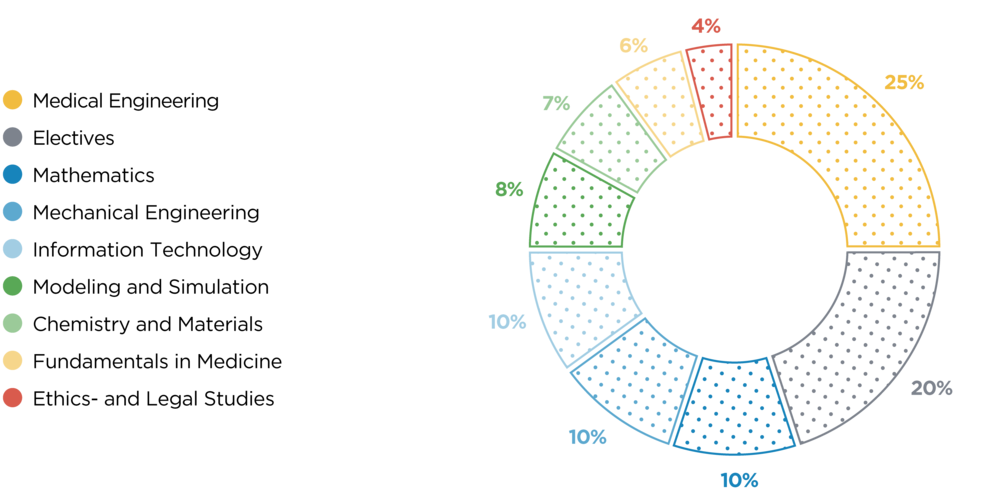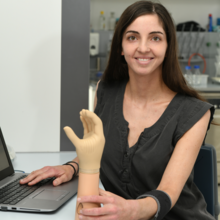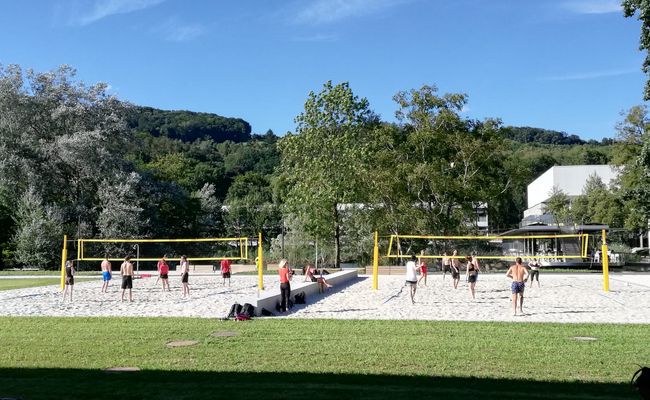Modern medicine is breaking barriers every day. The art of engineering consistently revolutionizes diagnostics, therapy, patient care, rehabilitation, and healthcare. The Bachelor's degree program in Medical Engineering gives you the perfect opportunity to dive into several worlds at the same time.
The program is based on a solid approach to education in mathematics, mechanics, electronics, computer sciences, chemistry and materials science as well as modeling and simulation. Base-knowledge education in medicine not only supplements the engineering and scientific areas, students become familiar with the specialized terminology, becoming qualified to specialize in various fields. You can also complete a final undergraduate thesis in medical technology, fulfill the admissions requirements for a variety of graduate degree programs, or pursue a number of exciting professions.
If you decide to pursue an advanced degree, the doors are open to challenge yourself and study surgical robotics, diagnostic imaging, prosthetics or developing artificial organs, and much more ... the choice is yours!
Page Content








